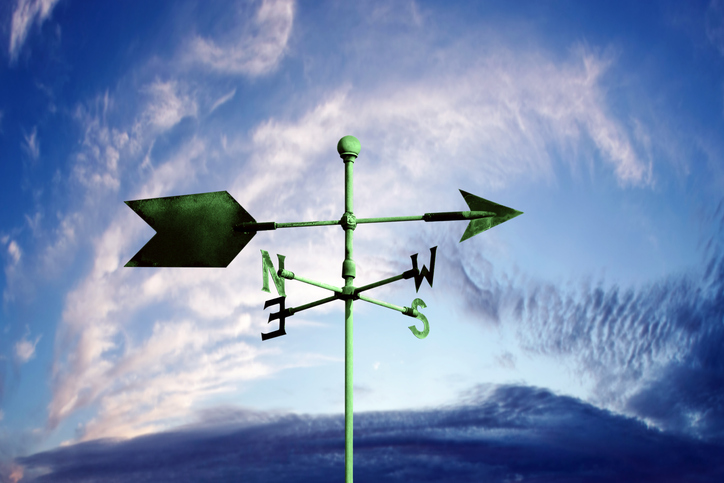Not surprisingly, I have fielded a number of questions about the “big, beautiful bill” (OBBB) and what it might mean for the economy and the Federal budget, moving forward. Unfortunately, I am certain my responses have been less than satisfying.
Frankly, I don’t see how anyone could be an expert on every provision in the legislation, given its length and complexity. As for the latter, let’s just say the verbiage isn’t your typical tailgate conversation. And the former? An estimated 870 pages of legalese is a gracious plenty, thank you. Finally, much of it comes across, in my opinion, as a tweaking of the tax code in order to produce results best measured in centimeters instead of miles.
So, I answer any questions about the OBBB with something along the lines of: “If it facilitates the flow of capital to its highest and best use, and leaves more money in the hands of individuals, it should be a good thing for the economy. We will have to wait and see. Separately, I am not sure there is any real appetite in Washington to make the structural changes necessary, primarily to spending, to get our deficits meaningfully under control.”
Put another way, I believe we will have to grow the economy faster than currently expected to have any chance of meaningfully shrinking the budget deficit. That isn’t terribly complicated. It is essentially the same thing as saying you will have to make more money to “make ends meet” if you don’t want to cut your spending.
Admittedly, that might be a pretty thin soup if you are looking for specifics to address a personal situation. However, in general, and directionally, I like my response and believe it to be fundamentally accurate.
Besides, as hard as it may be to believe, politics kind of bores me. I am not sure if that is a function of my getting older or the predictability of it all. Perhaps it is a combination of the two. Regardless, as I not so laughingly told a client last week: “the OBBB is permanent until 2029. We will have to see who is in power then, and it could all change.”
That is both important and a problem.
No, it isn’t necessarily a problem if a Democratic Congress and White House scratched the OBBB four years from now. Sure, it could be — but how could I possibly know the economic ramifications of a tax bill which may or may not exist in 2029? The real issue is the constantly changing rules, trade and foreign policies, priorities and core values.
How is the remainder of the world supposed to react to and deal with a country that does 180s potentially every presidential election cycle? How is corporate America supposed to make capital decisions if the tax code substantially changes every four years? Shoot, maybe even every two years, depending on the situation? Then, how are we supposed to run our lives and conduct our businesses as individuals if our local institutions and politics are diametrically at odds with the central government?
These are great questions, ones which I have never given much thought previously. After all, for all of our differences, it always seemed as though we were moving in the same general direction. That we had the same basic definition of success, but different methods of achieving it.
I suppose you could say I thought, perhaps naively, the political differences between most Americans was analogous to the theological differences between, say, the PCA and the PCUSA. For those of you not in the know, these are the two largest Presbyterian denominations in the United States. The former is generally accepted as more “conservative” than the latter, and there are some theological dissimilarities. However, both are Calvinist, reformist and maintain presbyterian polity.
In truth, to people from, say, Bhutan and Nepal, the differences between the PCA and PCUSA might be hard to determine. After all, the former is predominantly Buddhist, whereas the latter is mostly Hindu. Those are much bigger differences.
However, reading the headlines over the last, I don’t know, umpteen years, has me wondering whether we, in the United States, are facing something greater than “denominational differences” amongst Presbyterians.
Perhaps our problems are more social in nature than economic. As such, what practical impact does tweaking the tax code really do to address them? All the more so if people aren’t as “bought into the system” as previous generations have been? By system, I mean capitalism.
After all, there wasn’t what we know today as a stock market in Russia/Soviet Union from 1917-1990.
Relatively recent research suggests younger Americans aren’t as positive on capitalism as older generations are. Organizations from Gallup to Pew Research to The Hill have reported the same basic observation. Then, as I discussed a couple of weeks ago, there is a growing belief in the country, especially with younger people, that the “American Dream” is attainable.
Economically? That is a short-term so-what. As long as the Top 25% grow at an 8% rate, the U.S. economy has the potential to grow at 2%. Big deal. However, if the Bottom 75% decide they have had enough, well, that could be a real problem. After all, they vote. And if you are on top of the pyramid, you need to have the base to keep holding you up.
Taking this full circle, I am not trying to be as cavalier about the OBBB as perhaps it seems. Yes, it is a significant piece of legislation. Further, I like a few of the provisions in it, both personally and professionally. However, is it a silver bullet? A panacea for what ails us? That great missing link which will bring everything together in harmony? The secret code for success, without which we are all doomed to poverty or worse?
Probably not. Time will tell, but I have been walking around long enough to suspect tax bills in Washington aren’t necessarily the be-all and end-all. Otherwise, we wouldn’t have tax bills. There would have been only one, just one, and that would have been enough.
However, if you were to absolutely pin me against the wall and force some kind of meaningful conviction about the OBBB out of me, I would give you the following:
“As of 2:28 CDT on July 11th, 2025, the S&P 500 is up 0.92%, month-to-date, in principal terms. So, it would seem investors are at least somewhat okay with it.”
After that, I would ask for 3 steps towards the door.
Thank you for your continued support. As always, I hope this newsletter finds you and your family well. May your blessings outweigh your sorrows on this and every day. Also, please be sure to tune into our podcast, Trading Perspectives, which is available on every platform.

John Norris
Chief Investment Officer
Please note, nothing in this newsletter should be considered or otherwise construed as an offer to buy or sell investment services or securities of any type. Any individual action you might take from reading this newsletter is at your own risk. My opinion, as well as those of our Investment Committee, is subject to change without notice. Finally, the opinions expressed herein are not necessarily those of the rest of the associates and/or shareholders of Oakworth Capital Bank or the official position of the company itself.


